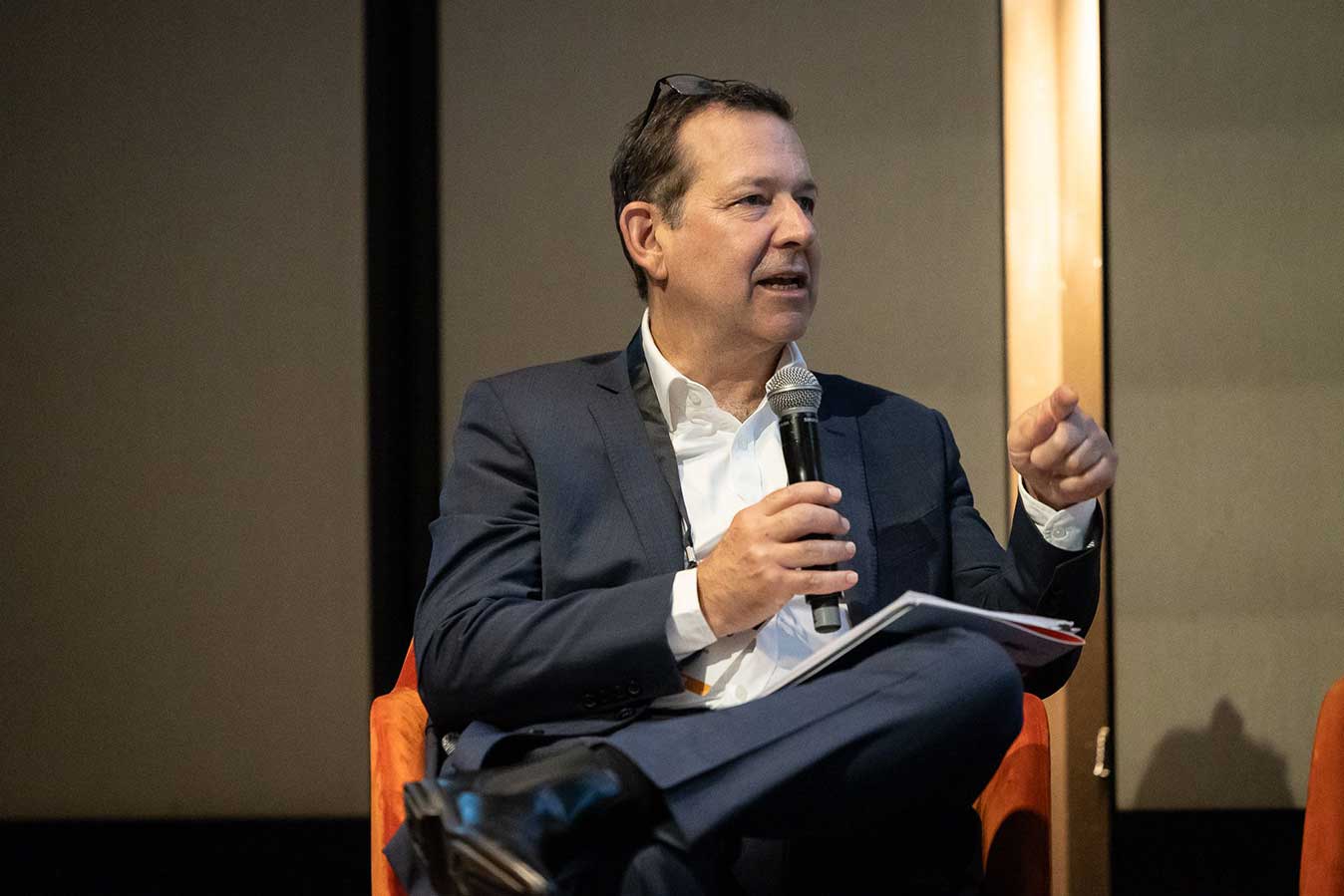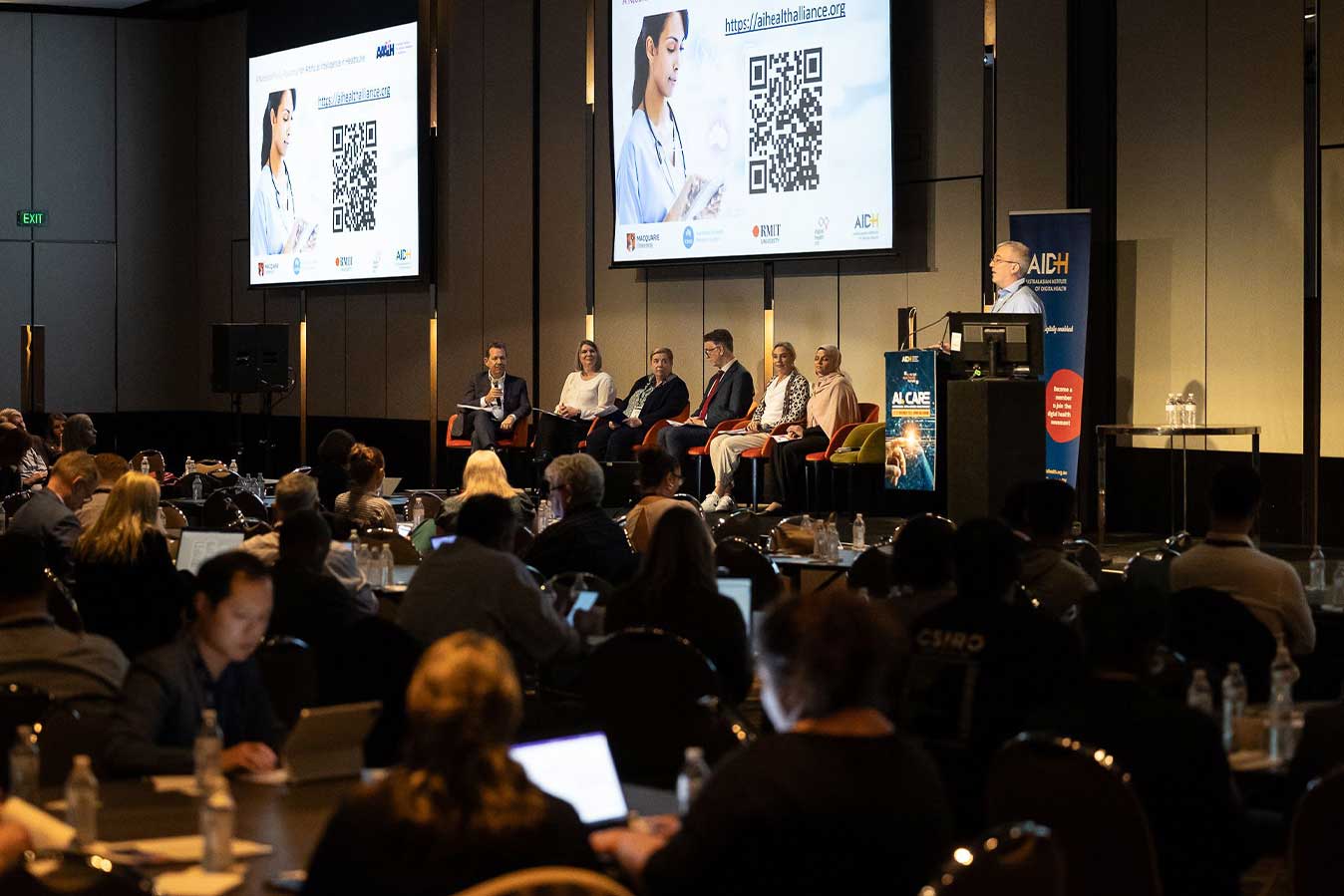The rise of artificial intelligence (AI) is too big to ignore and, for healthcare, too important not to get right, according to leading digital health expert Professor Enrico Coiera, who yesterday launched a national policy roadmap aimed at ensuring the safe, ethical, and effective use of AI in healthcare.
“For Australia’s healthcare system to remain sustainable and resilient while delivering quality care, it must evolve to meet many new demands, including increasing disease complexity, treatment intensity, climate change and future pandemics,” Professor Coeira, Director at the Australian Institute of Health Innovation (AIHI) at Macquarie University, states.
“From interpretation of imaging and pathology, triage and resource allocation, clinical documentation, through to personalisation of therapy, AI will be used by both consumers and clinicians and touch most aspects of the healthcare system.”
Professor Coiera unveiled the Roadmap during this week’s AI.Care Conference in Melbourne, hosted by the Australian Institute of Digital Health (AIDH), which brought together digital health experts from Australia and around the world to explore the safe and ethical use of AI in healthcare. Designed to assist government, industry, and consumers, the Roadmap identifies current gaps in Australia’s capability to translate AI into safe and effective clinical services and provides guidance on key issues such as workforce, industry capability, implementation, regulation, and AI safety.

The Roadmap provides 16 recommendations. They include:
- Establishing a National AI in Healthcare Council to ensure patients receive safe, effective and ethical care.
- Developing a robust risk-based safety framework.
- Healthcare organisations using AI should demonstrate that they meet minimum AI safety and quality practice standards.
- Urgently communicating the need for caution in the clinical use of generative AI when it is untested or unregulated for clinical settings, including clinical documentation.
- The development of a shared code of conduct for the safe, responsible and effective use of AI by health professionals and organisations.
- Assisting professional bodies to develop profession-specific codes of practice for the responsible use of AI.
- Co-design and collaboratively implement a nationally accessible program for digital health literacy to inform the Australian public of AI’s benefits, risks, and safe use.
One of the Roadmap’s key recommendations, to establish a National AI in Healthcare Council, would not require the development of a completely new agency, but rather, better coordination among existing organisations so that responsibilities and activities shaping the use of AI in healthcare are effectively streamlined and overseen, Professor Coiera told delegates.
“While Australia has a number of regulatory and government agencies responsible for some aspects of AI, a coordinated system-wide approach is the only way to ensure protection of patients, optimisation of our health workforce and the growth of a healthcare specific AI industry.”
A panel discussion on the next steps required following the release of the Roadmap included representatives from workforce, consumer, research and industry groups.
According to Professor Farah Magrabi, Professor of Biomedical and Health Informatics, at the Australian Institute of Health Innovation, the strength of the Roadmap lies in the fact it is “multilevel”, with recommendations at a regulatory, health service, workforce and consumer level aiming to ensure safe and ethical use of AI.
Dr Elizabeth Deveny, CEO of the Consumers Health Forum of Australia, said the growing use of AI in healthcare needed to include a strong focus on understanding what Australians actually want from their healthcare experience.
“In the case of all of us Australians who interact with the healthcare system, both professionally and personally, what is it you actually want from your healthcare,” Dr Deveny posed.
“We really need to understand what Australians want from their system of healthcare. Then we need to ask them if they would like AI to help them with some of those [health] problems.”
Tracey Duffy, First Assistant Secretary at the Therapeutic Goods Administration (TGA), suggested that the new Roadmap would increase the spotlight on supporting the local healthcare AI industry’s understanding of the regulatory process.
“It’s clear that a lot more needs to happen,” Ms Duffy said.
“Particularly in the clinical validation area and evidence and the transparency and explainability of the AI that’s being used.”
One of the Roadmap’s recommendations calls for significant targeted support for healthcare AI research that builds capability and leads to improved health services. Professor Karin Verspoor, Executive Dean, at the School of Computing, Technologies at RMIT University, said Australia lags behind other countries when it comes to investing in AI healthcare research. Other barriers include access to data due to privacy issues.
“Our research is limited unless we can access the relevant data and also the expertise in the clinical sector to help us define the right problems are meaningful in clinical care,” she said.
“We have, essentially, not enough data and not enough access to expertise from the perspective of the AI research community. That’s really a barrier to us moving forward on these sorts of technologies and adoption in the healthcare setting.”
While there are potentially many opportunities for healthcare to successfully implement AI, Professor Coiera said the challenge now was for key stakeholders to work together to find effective ways to realise these opportunities and improve care.
“It [the Roadmap] is the first time that I can remember digital health being in consensus about what needs to happen, and these are the things we want to see happen,” Professor Coiera said.
“It’s your Roadmap. Use this as a tool. This is what the community wants and believes is important. It’s going to be a really powerful platform for what’s next.”
View the Roadmap here








